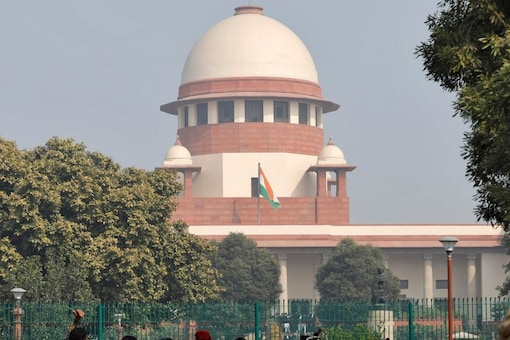Players will have equal voting rights in AIFF polls: SC
Players will have equal voting rights in AIFF polls: SC: The Supreme Court of India issued a directive in which it stated that the interim executive committee for the All Indian Football Federation should be elected not only by the 36 state federations but also by 36 leading former football players.
The Supreme Court of India made this observation after noting that the players who popularised the sport with their skill, performance, knowledge, and athleticism on the pitch should be given a voice in sports administration and not just to bureaucrats and politicians.
This was in response to the fact that the players should be given This indicates that the players will hold a share of the vote equal to fifty percent during the election. The conclusion was reached as a result of consideration given to the contention that the players ought to be supplied
It was stated by the panel of judges that DY Chandrachud and JB Pardiwala that the growth of the sport is taking place due to the performance of the players on the pitch, and that it will be highly good for the growth of the sport in India to give the players a voice in the administration of sports if the players are given a voice in the decision-making process of sports organizations.
FIFA
Since the FIFA Under-17 Women’s World Cup will be held in India in October and FIFA says that it should be hosted and governed by an elected body, the council has urged the court-appointed Administrators Committee (CoA) to hold a vote as soon as possible on the draught constitution that it created.
According to FIFA regulations, an elected body should be responsible for both hosting and managing the tournament.
The Committee of Administrators made a suggestion to the bench that the general body, which is in charge of electing and electing the executive committee, should not only be comprised of the 36 country associations but also of the 36 leading players who have previously played for India at the international level. This was a recommendation that was made by the Committee of Administrators.
It is to the highest court’s credit that efforts are being made to include former international players in the election of the interim executive committee of the AIFF. Because of this, the environment will surely become one that is more friendly to the interaction between players.
However, there is no guarantee that those who once competed at the international level will be successful in administrative roles. This is because there are many factors that contribute to administrative performance. Or vice versa.
AIFF
The Asian Indoor Football Federation (AIFF) is looking for officials that not only understand the rules of the game but also have high moral standards, a strong work ethic, and plenty of brains. These officials ought to have prior experience both as players and as non-players, and they ought to have both of these qualifications.
Senior counsel Gopal Sankaranarayanan, who was representing the COA before the bench, stated that it is possible that there are not many women who have competed internationally for the country, and as a result, 24 of the players should be male and 12 should be female. Gopal Sankaranarayanan was arguing that this justification justifies the COA’s decision to have 24 male players and 12 female players.
He indicated that the players would be recruited from the National Football Players Association since it was likely that there would not be a leading footballer in each state.
The reason he gave for this was that there was a possibility that there would not be a leading footballer in each state. In addition to this, he added that those players who had participated in a bigger number of games would be given priority in the selection process.
The state association strongly disagreed with the proposal to include former players in the electoral college that would be used to choose members of the executive committee.
They argued that doing so would violate both FIFA regulations and the National Sports Code. Despite their vehement opposition to the proposal, it was ultimately approved.

